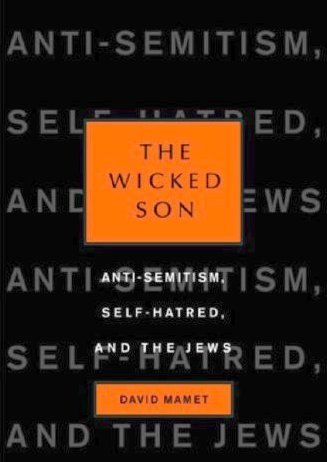Korach’s legacy of self-hatred haunts us today
A version of this column appeared in 2011.
Writer David Soloway accurately described it as “a betrayal from within. … The rebellion of Korach, Dathan and Abiram against Moses and his mission to create a unified and cohesive people set the tone for much of what followed in the history of the Jews.”
This tragic history of betrayal from within has, in recent times, come from the political left.
“There were many Jews who have turned against their own compatriots for ostensibly ‘noble’ reasons, like the Yevsektsiya or European and Russian Jews who joined the Bolsheviks and were instrumental in the formation of the Soviet Communist Party, until they were duly liquidated.
“Today, these are the Jews who embark on flotillas to abet a terrorist regime in Gaza, validate the Palestinian narrative, practice outreach and dialogue with Islamic murderers, vote ‘liberal’ and pride themselves on their pacific and ecumenical ideology.”
What Solway wrote was foreseen in the 2006 book by award-winning playwright and author David Mamet, “The Wicked Son, Anti-Semitism, Self-Hatred, and the Jews.” This little volume deals with the whole issue of Jewish self-hatred, and with this week’s Torah reading of Korach I thought it most appropriate to give this book and the issues it eloquently deals with its proper recognition.
In his review in the Jewish Journal, Tom Teicholz accurately states that Mamet “identifies the many contemporary forms of anti-Semitism, unmasks those who support it or who, passively, refuse to stand up against it. ‘Anti-Semitism is a sickness, and its playbook is extremely limited,’ he told me. In The Wicked Son, he exposes several canards used by anti-Semites of all stripes — double standards, faulty logic — demonstrating that the arguments used by today’s anti-Semites haven’t changed much throughout Jewish history.”
Flowing throughout the book is a sense of the rabid self-loathing that motivated the actions of Jews from the time of Korach to this very day.
Consider the following observation by Mamet:
“Here we may find the proud inheritor of millennial traditions, happy to announce that he is ignorant of all observance, happy to indict the State of Israel in ignorance of its trials, and blind to the fact that it is a country and, like any country will make mistakes. This ex-Jew, like the member of any hermetic or oppressed group will unerringly and automatically seek out his own, with whom he may share his fantasy of individuality.
“This person, who likely has never felt the warmth of Shabbos, the purity of Yom Kippur afternoon, the beauty of ‘Eishet Chayil,’ who will not marvel at the courage of his immigrant grandparents, or weep at the death of his cousins in the Shoah, and of his cousins on the boardwalk in Tel Aviv, confuses the ideal with the real.”
From this rediscovery of the reality of the Jewish destiny, Mamet evolved to embrace political conservatism, free market capitalism and the virtues of freedom and limited government. This is an awesome experience to read about and behold.

 49.0°,
Fair
49.0°,
Fair 




